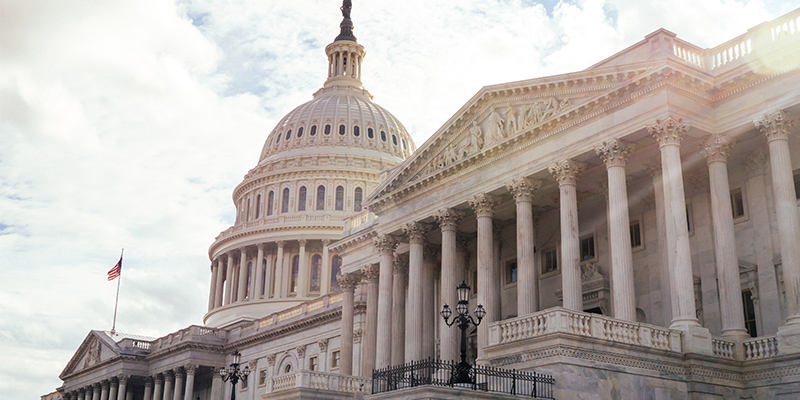Iowa Republicans held their 2024 presidential caucus on Jan. 15, and as expected, former President Donald Trump won with 51% of the votes cast. Florida Governor Ron DeSantis placed second with 21.2% and former South Carolina Governor Nikki Haley placed third with 19.1%. Businessman Vivek Ramaswamy, after receiving 7.7% of the votes, suspended his campaign and promptly endorsed Trump. Former Arkansas Governor Asa Hutchinson received less than 200 votes and also suspended his campaign, but has yet to endorse another candidate.
The current delegate totals among the candidates stand at Trump with 20 delegates, DeSantis with 8, Haley with 7 and Ramaswamy with 3. A candidate needs 1,215 delegates to win the party’s nomination. The action now moves to New Hampshire where Republicans will hold their first presidential primary on Jan. 23, and then to South Carolina where the first Democratic primary will be Feb. 3 and the Republican primary will be Feb. 24.
Unless a major shakeup occurs, it is likely that we will see a repeat of the 2020 race between President Joe Biden and Trump. If so, it will be the first time a former president has run as his party’s nominee for a non-consecutive presidential term since 1892, when former President Grover Cleveland (D) defeated incumbent President Benjamin Harrison (R) in a rematch.
Back in Washington, things have been tense ahead of the Jan. 19 expiration of the first set of congressional appropriations bills in the laddered Continuing Resolution (CR), which funds agencies including Agriculture, Energy-Water, Military Construction-Veterans Administration, and Transportation-Housing and Urban Development. The second set of appropriations bills in the CR expires Feb. 2 and includes the agencies of Commerce-Justice-Science, Defense, Financial Services-General Government, Homeland Security, Interior-Environment, Labor-Health and Human Services-Education, Legislative Branch, and State-Foreign Operations. The House is scheduled to be in recess from Jan. 20-28.
However, House Speaker Mike Johnson (R) and Senate Majority Leader Chuck Schumer (D) have reached a preliminary agreement to extend federal government funding into March by moving the Jan. 19 deadline to March 1 and the Feb. 2 deadline to March 8. The agreement also includes topline spending levels of $773 billion in nondefense discretionary spending and $886 billion in defense spending. These levels are in line with the agreement reached last summer between former House Speaker Kevin McCarthy and Biden.
It is likely that the stopgap measure will be considered this week under a legislative maneuver known as suspension of the rules that would allow the House speaker to bypass certain procedural votes and avoid having the measure torpedoed by conservatives. If this occurs, it will need a two-thirds majority to be approved by the House, so Johnson will need significant Democratic support.
Another development of interest to NAIOP members is the bipartisan Tax Relief for American Families and Workers Act of 2024, recently announced by House Ways and Means Committee Chairman Jason Smith (R-MO) and Senate Finance Committee Chairman Ron Wyden (D-OR). The $78 billion agreement includes expansion of the child tax credit and the extension of several expiring business provisions from the Tax Cut and Jobs Act passed in 2017.
To meet Senate Democratic priorities, the legislation would expand access to the child tax credit by increasing the refundable portion for 2023, 2024 and 2025. It also eliminates the penalty for larger families and includes one-year income lookback, allowing taxpayers to use either current- or prior-year income to calculate the child tax credit in 2024 or 2025. It also adjusts the credit for inflation in 2024.
Provisions favored by House Republicans include an extension of research and development (R&D) expensing provisions, which will allow businesses to deduct the cost of their U.S.-based R&D investments immediately, instead of over five years as required in current law. Another provision is the continuation of interest deductibility and 100% expensing for the immediate cost for investments in machinery, equipment and vehicles. Provisions that benefit small businesses are the raising of the expensing cap to $1.29 million and increasing the reporting threshold for businesses that use subcontract labor from $600 to $1,000, while indexing future reporting thresholds for inflation.
To help improve the supply of affordable housing, the agreement restores the 12.5% State Housing Credit Ceiling Increase for Low-Income Housing Credit for calendar years 2023-2025 and is effective for taxable years beginning after Dec. 31, 2022. It also lowers the bond-financing threshold to 30% for projects with an issue date before 2026. In addition, the proposal includes disaster tax relief for victims of recent hurricanes, flooding, wildfires and the Ohio rail disaster – a popular provision for members of both parties.
The projected loss in federal revenues is to be recouped by moving the deadline for filing backdated claims for the COVID-19-era employee retention tax credit to Jan. 31, 2024, which is projected to save $70 billion. The House Ways and Means Committee is expected to approve the proposal this week, with floor consideration when the House returns the week of Jan. 29.
In any year with divided government, it is a challenge to achieve agreements on appropriations and tax policy, but this Congress is also faced with challenges of reaching agreements on border security, along with assistance to Israel, Taiwan and Ukraine. Margins in both the House and the Senate are narrow and the presidential election year shortens the legislative timeline before congressional re-election campaigns start in earnest. So, the first half of 2024 looks to be very busy here in Washington.








